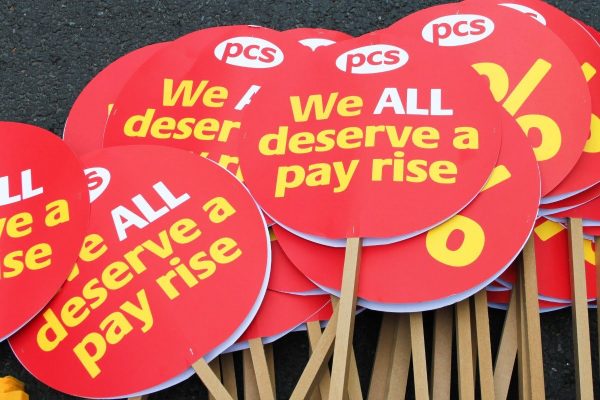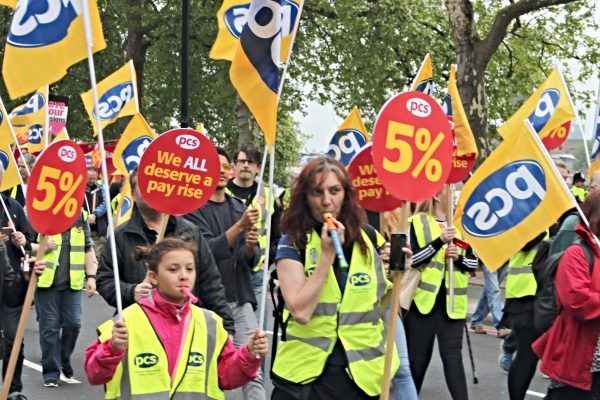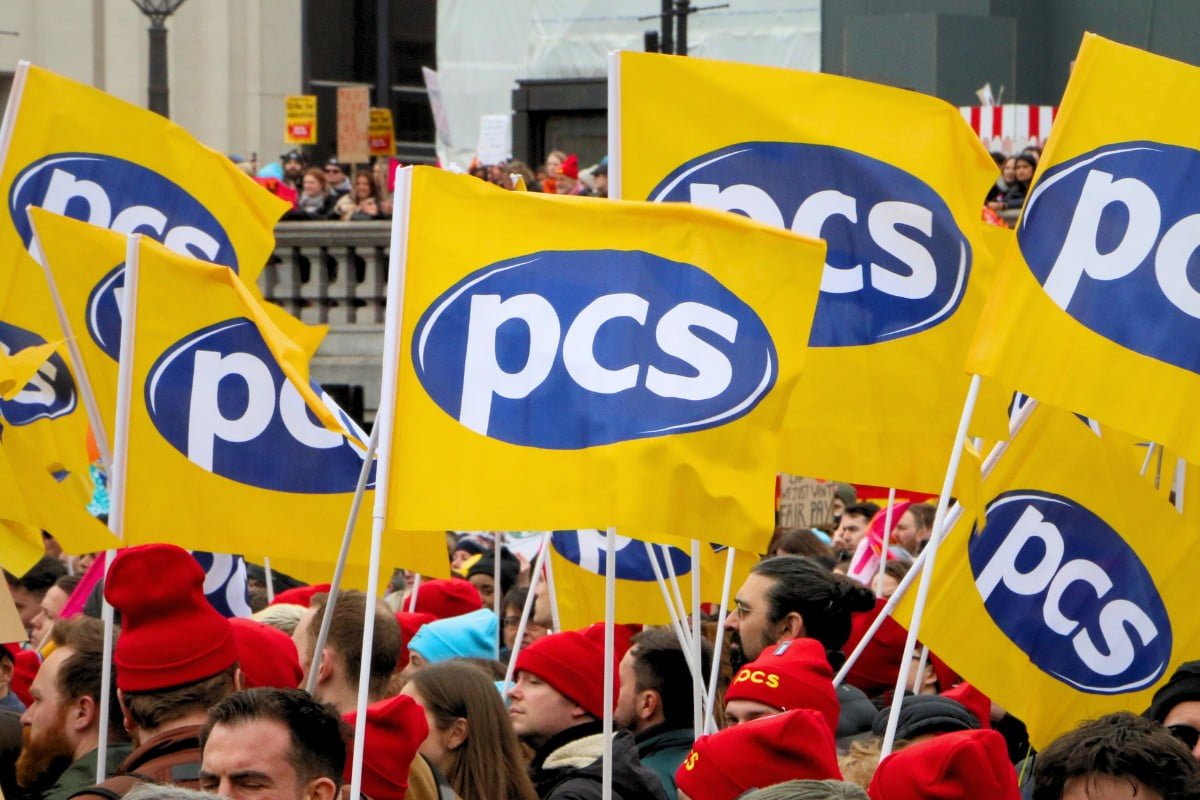Over the past few months, our union – PCS – has moved into action against the cost-of-living crisis plaguing our members, and against the Tories’ ruinous austerity agenda.
PCS members have responded en masse to the call to strike, with over 130,000 civil servants and public sector workers taking part in the union’s walkouts. Even the government’s scabbing efforts have failed to dampen the impact of this action.
Significantly, in both the initial ballot and subsequent reballots, the union’s average national turnout beat the 50% threshold imposed by Tory anti-union laws – something it had never done previous to that.
This shows the depth of feeling amongst civil service workers, who have been hammered for years by attacks on pay and conditions, and by opportunistic Tory ministers looking to appease their rabid ranks by waging war on the so-called Whitehall ‘blob’.
Now, with new layers of workers – such as local government unions – joining Britain’s strike wave, we must prepare for even fiercer battles.
Strengths
So far, our campaign over pay, jobs, and conditions has been centred around targeted action. Strikes have been solid in most departments, with well-attended pickets in most cases.
Even where departments were hit by the Tories’ scabbing attempts, such as with the Border Force, the government’s intervention has been so chaotic as to be laughable.
The strength of our struggle is reflected in the recent national reballot result. Although a few employer areas failed to meet the turnout threshold, the overall picture nationally is one of an increased ‘Yes’ vote for strike action.

88% of members backed walkouts this time, compared to 86% before, with a similar national turnout of 52%.
The results reveal a slightly uneven picture when it comes to turnout. In particular, the DWP, which just got over the threshold in the initial ballot, unfortunately dipped below it this time around.
Members are clearly frustrated by this. But the mood is still there for a fight. A focused reballot therefore has every chance of succeeding.
In terms of the uneven turnout across the union, the picture is somewhat complex. Some departments are historically less organised than others. Members in these areas therefore have to put in more effort to get the vote out. In others, reports of temporary absences – due to holidays or sickness – may explain the lower turnout.
Generally, however, we have every reason to be positive despite the small setbacks. The Tories thought that our mood to fight would fizzle away. But these results show just how wrong they were.
Indeed, reports indicate that many workers in departments where little organisation existed before, such as the Passport Office, have taken this opportunity to enthusiastically join the union. These new layers will help to swell our ranks and bolster our forces.
Sectarianism
Unfortunately, alongside these developments, pernicious sectarianism has been rearing its head inside the union again recently.
There are certainly elements of the strike that could be strengthened. And no doubt this will be the focus of debate at this week’s conference, and more broadly. This is both right and proper.
But some groups – such as the Socialist Party – seized upon these potential criticisms as a pretext for making unprincipled attacks on the Left Unity leadership during the recent NEC elections.
Despite their vitriol, this opposition failed to make any significant headway. Nevertheless, rule-or-ruin approaches to intra-union debates can do much harm, even when they fail to produce significant electoral results.
An open and comradely discussion about strategy and policy is always desirable. But it is impossible to have a genuine debate when one side insists on exaggerating and distorting its opponents words, in pursuit of its own narrow, short-term interests.
Simply put, such divisive behaviour is no way to win a strike. In fact, it plays right into the hands of the employers. For workers to win, such sectarian antics must be brought to an end immediately.
Unity
Overall, it is clear that PCS members are prepared to continue the fight. What is needed now is to mobilise for an escalation of the struggle, building on the clear determination to fight that exists across the union.
As a first step, this means strengthening our strike activity by calling longer and sharper strikes in multiple departments at a time. As before, the key departments identified by the union in its last round of strikes should be prioritised as part of this strategy.

PCS’ current policy of unified strike action shows the way forward. Existing efforts to coordinate walkouts with other unions should be stepped up in this next period – particularly in the rest of the public sector, with local government, teaching, and health unions all looking to strike.
In particular, it is notable that the local government unions are all preparing to ballot their members, with a view to striking against their own risible pay offer. These workers are natural allies for PCS members. Their fight is our fight!
Linking our struggles is the best way to strengthen them, and the only way to prevent the Tories from picking off unions one by one, as has happened in the battle over NHS pay.
Socialism
On the basis of a mass campaign of coordinated action across the trade union movement, we could go beyond just winning concessions here and there. Far from being strong, as it would like to pretend, this Tory government is in fact almost comically weak.
Organised around a bold socialist programme, a tsunami of strikes could topple the crisis-ridden Tories, reverse the attacks on pay and conditions, and even overturn the bankrupt capitalist system that lies behind the employers’ offensive.
As each day passes, more and more members of our class are preparing to fight back against the constant erosion of their living standards and livelihoods. They are looking to our struggles for inspiration.
As it has been in the past, PCS is in a prime position to lead the charge and give the whole labour movement an example to follow.






